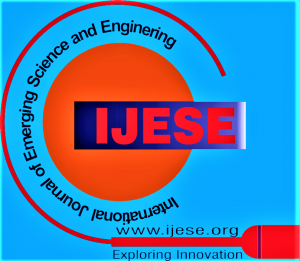![]()
Advanced Control of Direct Torque Control of Induction Motor Drive Using Pi Based Fuzzy Logic Controller
Raghava Reddy. R1, P. Ram Kishore Kumar Reddy2
1Raghava Reddy. R, Department of Electrical and Electronics Engineering, Mahatma Gandhi Institute of Technology, Hyderabad, India.
2Dr. P. Ram Kishore Kumar Reddy, Department of Electrical and Electronics Engineering, Mahatma Gandhi Institute of Technology, Hyderabad, India
Manuscript received on January 12, 2015. | Revised Manuscript received on January 13, 2015. | Manuscript published on January 25, 2015. | PP:7-11 | Volume-3 Issue-3, January 2015. | Retrieval Number: C0892013315
Open Access | Ethics and Policies | Cite
© The Authors. Published By: Blue Eyes Intelligence Engineering and Sciences Publication (BEIESP). This is an open access article under the CC BY-NC-ND license (http://creativecommons.org/licenses/by-nc-nd/4.0/)
Abstract: A Variable-Frequency Drive is a type of adjustable-speed drive used in Electro-Mechanical drive systems to control the AC motor speed and torque by varying motor input frequency and voltage. Variable-Frequency Drives are used in applications ranging from small appliances to the largest of mine mill drives and compressors. Over the last four decades, Power Electronics technology has reduced Variable-Frequency Drive cost and size and has improved performance through advances in semiconductor switching devices, drive topologies, simulation and control techniques, and control hardware and software. The speed control of the Variable-Frequency Drive is of two types; Scalar and Vector. Scalar Control is based on the relationships valid in the steady state conditions, only magnitude and frequency of voltage, current and flux linkage are controlled. Vector Control is based on relationships valid for dynamic states, not only magnitude but also instantaneous positions of voltage , currents and flux. Direct Torque Control is one of the Vector Control method to control the Variable Frequency Drives. The main drawback of the DTC of IMD using conventional PI controller based SR is high torque, stator flux ripples and speed of IMD is decreasing under transient and steady state operating conditions. The work of this project is to study, evaluate and compare the technique of the conventional DTC and DTC-FLC applied to the induction machines through MATLAB/simulink.
Keywords: Induction Motor Drive, Direct Torque Control (DTC), Fuzzy Logic Controllers (FLC).
